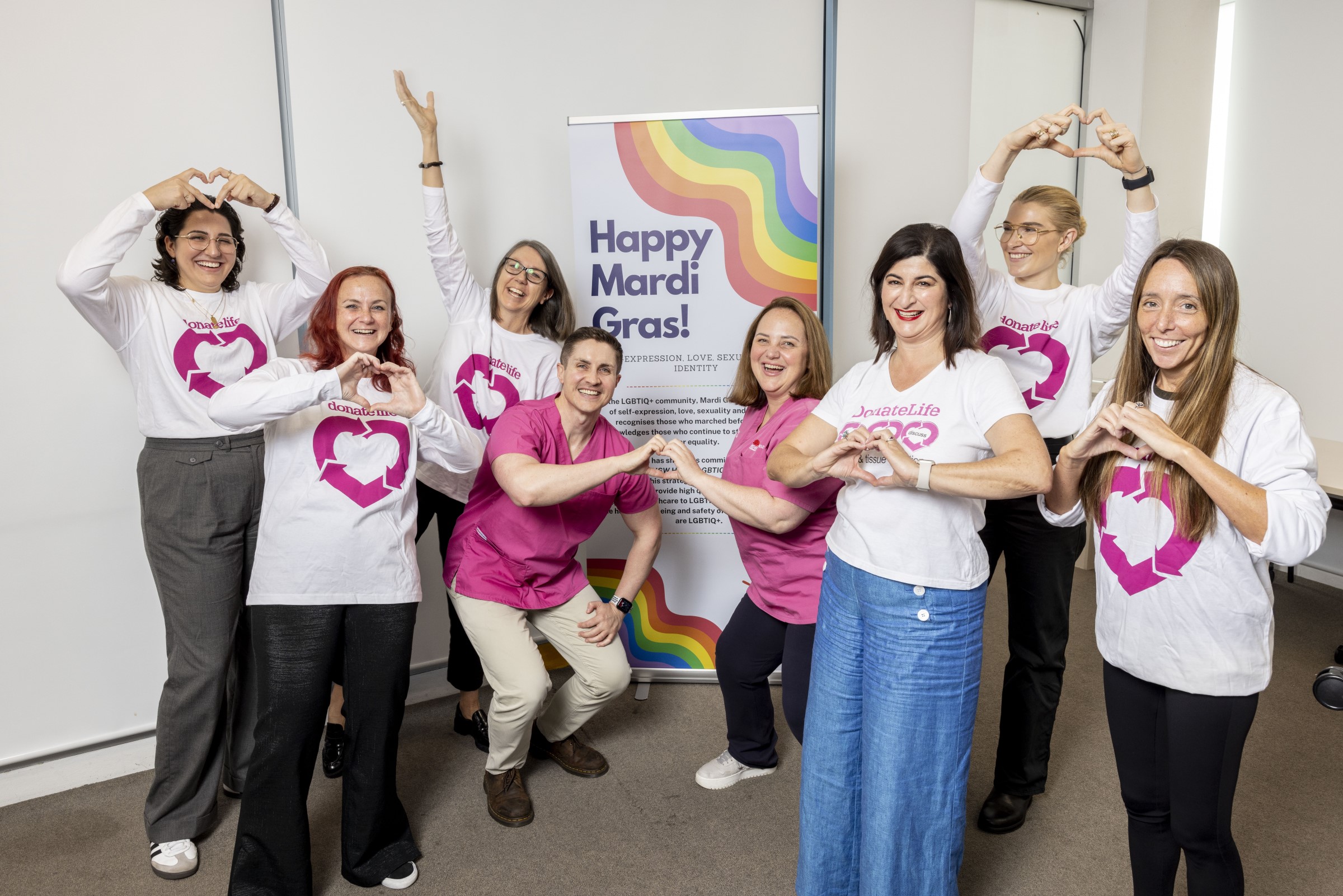LGBTIQ+ Donation
In 2020 the NSW Organ and Tissue Donation Service worked with ACON and Southern Cross University to survey the LGBTIQ+ community about attitudes to organ donation. 430 responses showed that the LGBTIQ+ community has similar beliefs to the wider community, but some were uncertain about whether being HIV positive rules out the possibility of donation. We have heard you, so we’ve provided answers to a few frequently asked questions below.
Frequently Asked Questions
What if I’m older or not in good health? Can I still be an organ and tissue donor?
Age is not a barrier - people over 90 have become organ and tissue donors. While your age and medical history will be considered, you shouldn’t assume you’re too young, too old or not healthy enough to become a donor.
Can I be an organ donor if I am living with HIV?
Yes, you can. In fact there are five people who have HIV on the waiting list for organs right now. As with anyone donating, overall health or conditions of organs and compatibility with potential recipients is evaluated before proceeding to donation.
I’ve registered to be an organ donor but my family don’t agree with it. Can they over-ride my decision?
It is important to discuss your decision to be an organ and tissue donor with your family and/or loved ones. Families or loved ones are always consulted regarding donation and will be asked before donation proceeds. Most families agree to donation when their loved one has registered.
Who is recognised as next of kin when decisions are being made about organ and tissue donation?
Next of kin includes same sex partners – de facto or married – parents and siblings.
What if I am estranged from my parents and siblings? Can they still act as next of kin?
The next of kin will always be consulted. If there is a partner – de facto or married – they are considered the senior next of kin and their view will be most relevant. In the same way that your age and medical history does not matter, your lifestyle does not either – you should still register. Research shows that 8 in 10 families will honour the donation wishes of their family member, so be sure you register to donate and then have a conversation with your family about your wishes.
Is it true that I can’t donate organs if I am a man who has sex with men?
False. A person’s sexual orientation, gender, gender identity or expression does NOT prevent that person from becoming an organ donor. All people at end of life in emergency care, wishing to donate organs will be considered. Organ donation is not the same as living blood (Australian Red Cross Lifeblood) or tissue donation, where some sexual activity is taken into account. All potential organ and tissue donations are valued and assessed at the time, including those from the LGBTQ community.
If I end up in hospital and the doctors find out I’m a registered donor, will they work as hard to save my life?
Health professionals do everything possible to save lives, regardless of your willingness to donate. Their first duty of care is to save your life.
Can HIV+ people receive organ donations?
Yes. Your HIV status does not preclude you from being placed on the organ or tissue transplant waiting list. In fact there was recently an instance of HIV+ to HIV+ organ donation. Read more about this here.
How do I register to be an organ and tissue donor?
You can register as an organ and tissue donor on the Australian Organ Donor Register.
